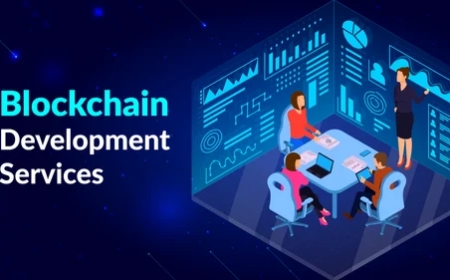How Artificial Intelligence Is Reshaping Customer Experience
Explore how artificial intelligence is transforming customer experience through smarter service, personalization, and ethical AI practices shaping future trends.

Welcome to the Age of AI-Powered Customer Experience
Not too long ago, getting help from a company meant waiting on hold, pressing buttons to navigate endless phone trees, and hoping a human would eventually pick up. Fast forward to today, and you're likely greeted by an AI chatbot that not only knows your name but already understands why you're reaching outand offers a solution before you can finish typing.
This shift isnt a fluke. Its the result of artificial intelligence (AI) becoming deeply embedded in how companies interact with customers. From the way we shop online to how we get support when something breaks, AI systems are completely transforming customer expectationsand raising the bar for businesses everywhere.
Lets take a closer look at how this transformation is happening, what it means for those of us in IT, and why understanding the ethics of AI is more important than ever.
The Rise of AI in Customer Interactions
AI isnt just about robots or futuristic tech anymore. Its in your inbox suggesting replies, in your favorite e-commerce app recommending products, and even behind the scenes analyzing your feedback to improve service. This shift is part of larger AI trends reshaping industries in real time.
Take Amazons customer service as an example. Their AI can proactively refund your money if a delivery is lateno need to even contact support. Netflix uses machine learning to personalize your homepage based on your viewing habits. These subtle but impactful interactions are powered by AI systems designed to anticipate needs and respond in real time.
Behind the curtain, these systems use massive amounts of data to learn patterns, make predictions, and improve over time. And for businesses, the payoff is huge: faster service, higher satisfaction, and more loyal customers.
Personalization: The Secret Sauce
One of the most powerful things AI brings to the customer experience is personalization at scale.
Imagine walking into a store where every employee knows your name, your preferences, your past orders, and even your mood. Thats essentially what artificial intelligence is making possibleexcept digitally, and across thousands (or millions) of customers at once.
Spotifys Discover Weekly playlist? AI. That People also bought section on Amazon? Also AI. These features aren't just convenient; they make users feel understood. And that emotional connection is where businesses start to see real value.
For IT professionals, this means developing systems that balance data collection with user privacyand thats where ethical AI becomes non-negotiable.
AI Doesnt SleepAnd Neither Does Customer Service
One of the unsung heroes of modern customer experience is 24/7 availability. Whether you're in Mumbai or Madrid, customers now expect round-the-clock supportand AI systems make that possible.
Chatbots and virtual assistants, powered by natural language processing, can handle thousands of queries at once. Some are even multilingual, allowing global companies to offer seamless support across time zones without the traditional costs of hiring and training a huge team.
But heres the twist: customers still want the option to talk to a real person when things get complicated. So smart companies are using AI not to replace humans, but to enhance them. The best systems use AI to handle repetitive tasks while routing more complex issues to human agentsarmed with all the relevant data the AI has already gathered.
Ethical AI: More Than Just a Buzzword
As AI becomes more embedded in customer interactions, so do questions around fairness, bias, and transparency. For example, if an AI system recommends a loan product or decides how a complaint is prioritized, what criteria is it using? Who trained it? And what biases might be baked into the data?
These are critical concerns that anyone in ITor anyone using AIneeds to care about. The ethics of AI isnt just an academic topic anymore; its front and center in how companies build trust.
Creating ethical AI means being intentional about data use, ensuring algorithms are explainable, and designing systems that serve all users fairly. Whether you're working in customer experience, security, or even AI in education, the same principles apply.
What This Means for Future IT Professionals
If youre exploring a career in IT, the intersection of AI systems and customer experience is a goldmine of opportunity. Whether you're building chatbots, training machine learning models, or shaping company policies on ethical AI, your work can directly impact how people interact with brands every day.
And it's not just about tech skills. The most in-demand professionals will be those who understand the human side of AIwho can think critically about ai trends, anticipate unintended consequences, and help build systems that are not just smart, but also fair.
Final Thoughts: The Human Touch in a Digital World
Artificial intelligence is undeniably transforming customer experiencebut it's doing more than just speeding things up. Its helping companies become more empathetic, more efficient, and more aligned with what customers truly want.
As we continue down this path, the challenge for IT professionals isnt just keeping up with ai trendsits helping lead the way responsibly. Whether youre a developer, analyst, or aspiring product manager, theres a role for you in shaping the future of ethical AI.
So if youre ready to dive in, start learning, and maybe even build the next great customer-facing AI tooltheres never been a more exciting time to jump in.










































